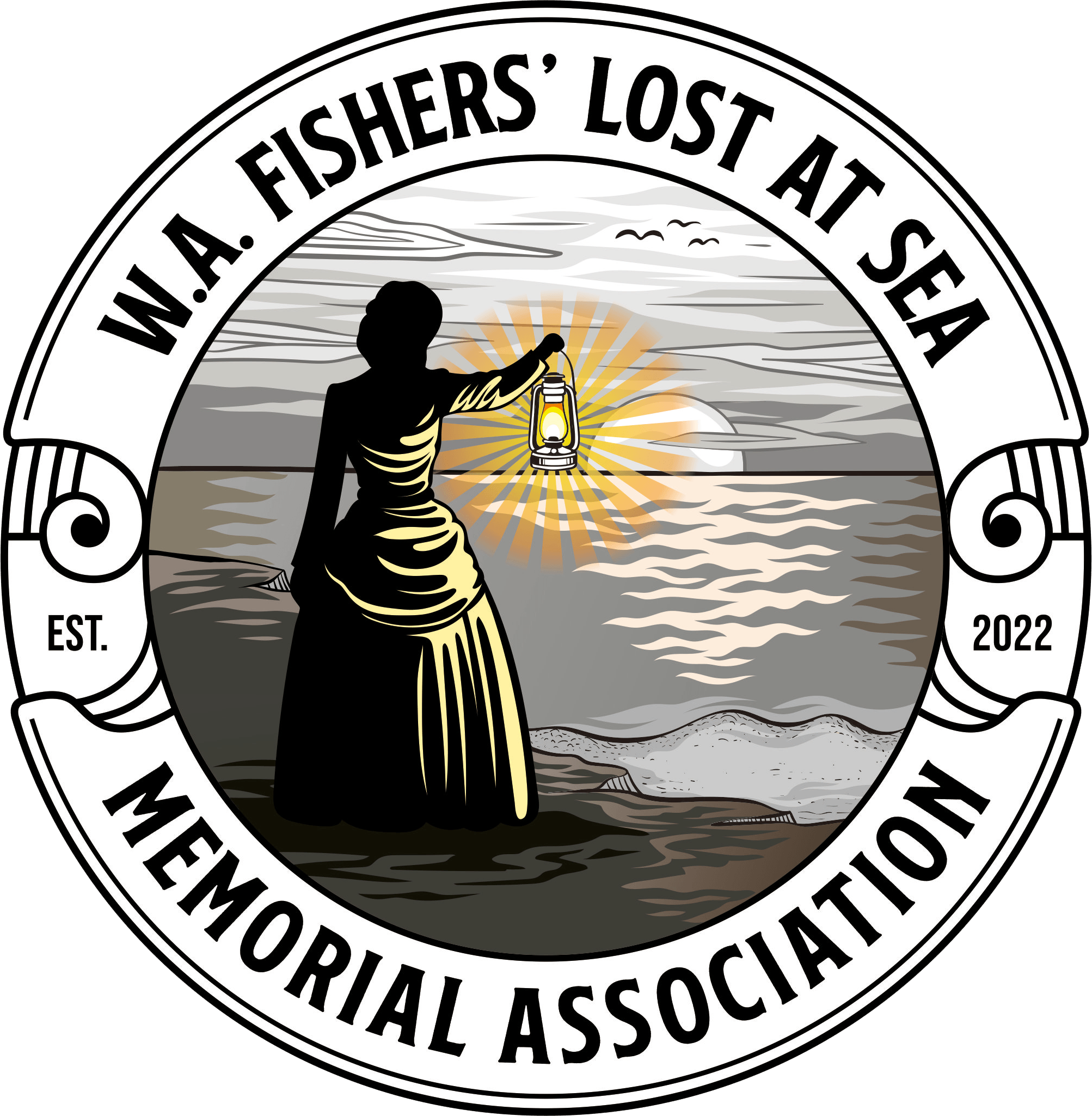Del Rosso Family
Country of Origin: Italy
Arrival in W.A.: 1908
W.A. Region Settled: Perth-Metro
The extraordinary life of Frank Del Rosso and his contribution to the establishment of the WA Commercial Fishing Industry.
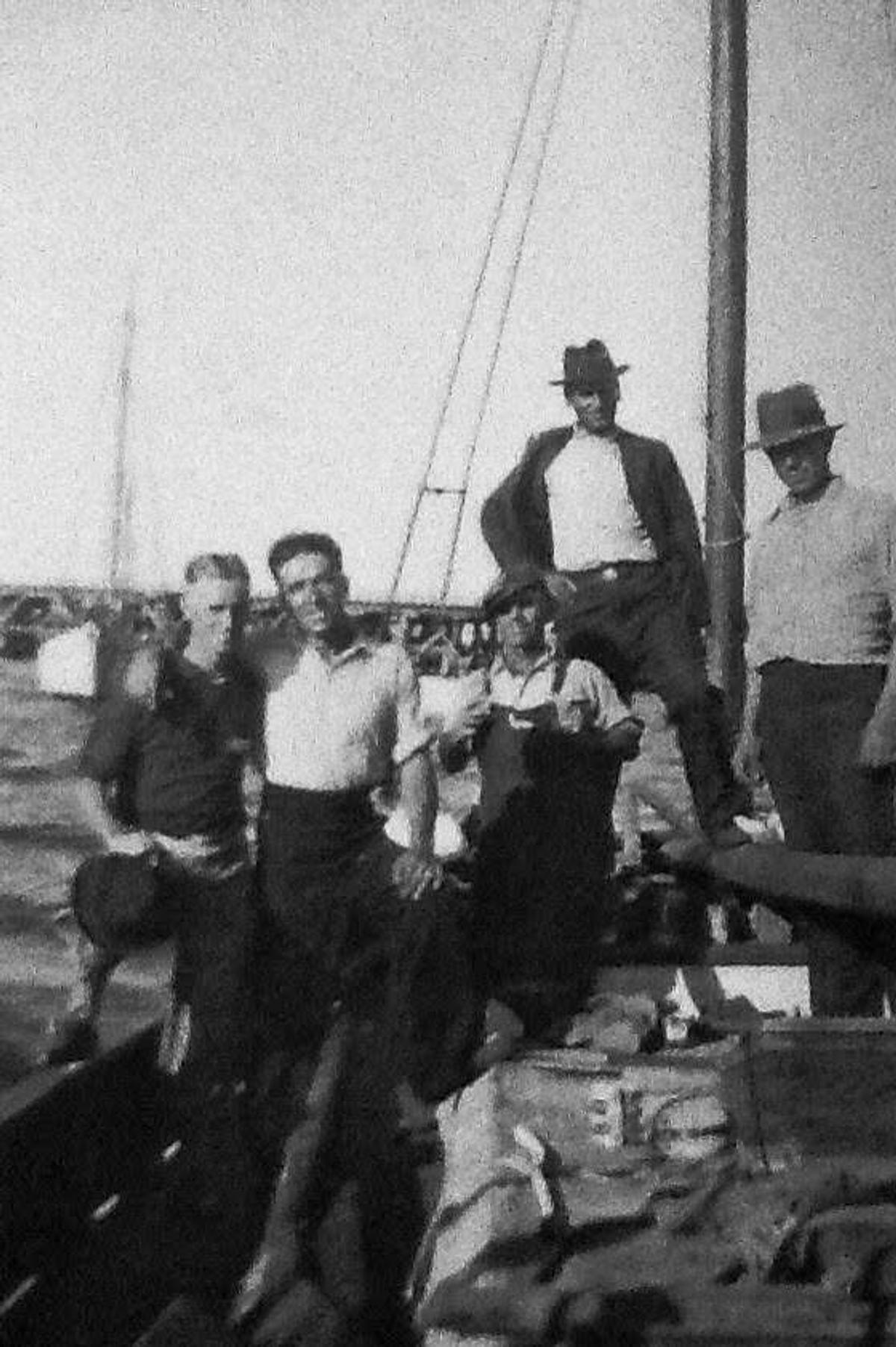
Frank Del Rosso LFBF Princess Yolanda in 1939
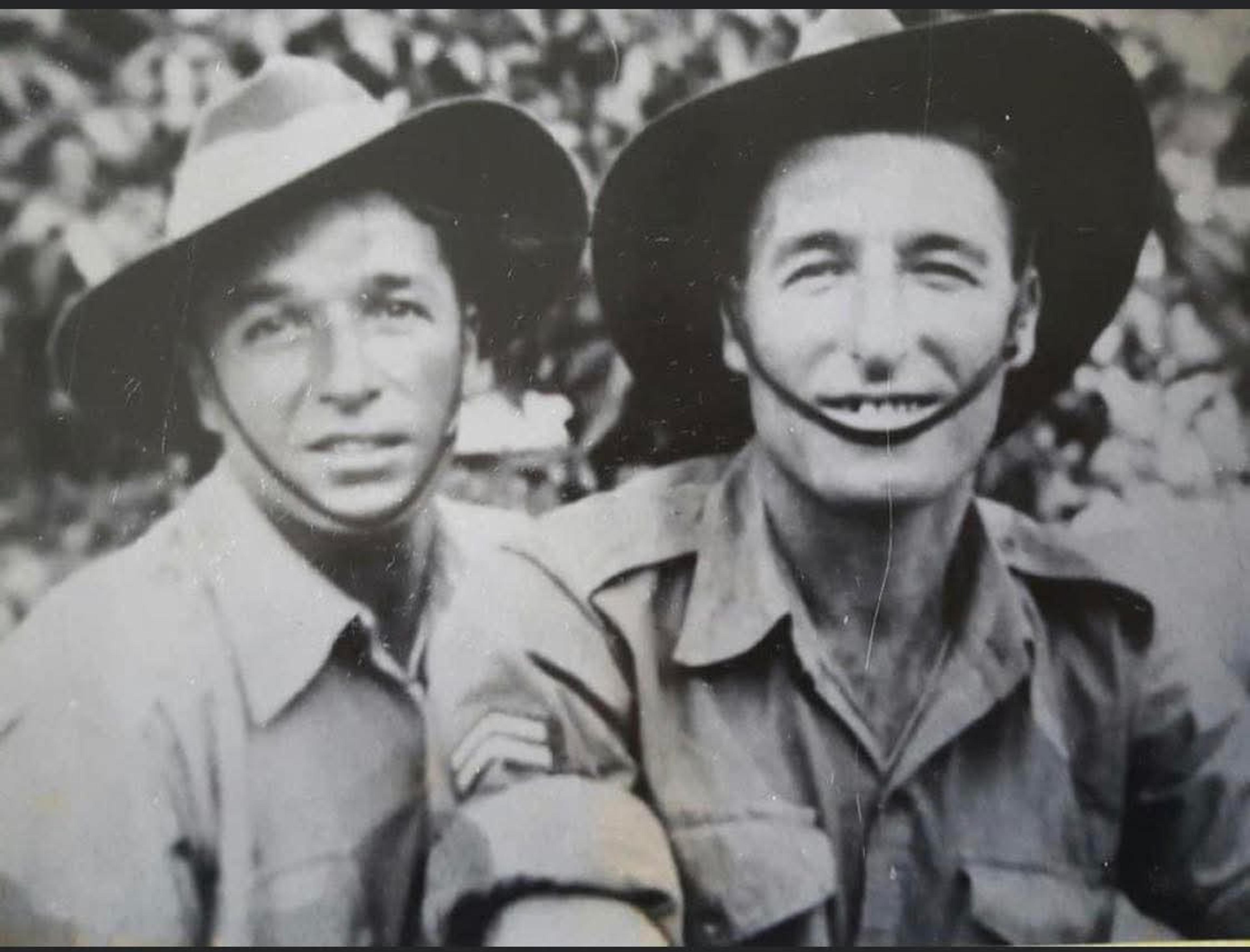
Frank and Stephen Del Rosso
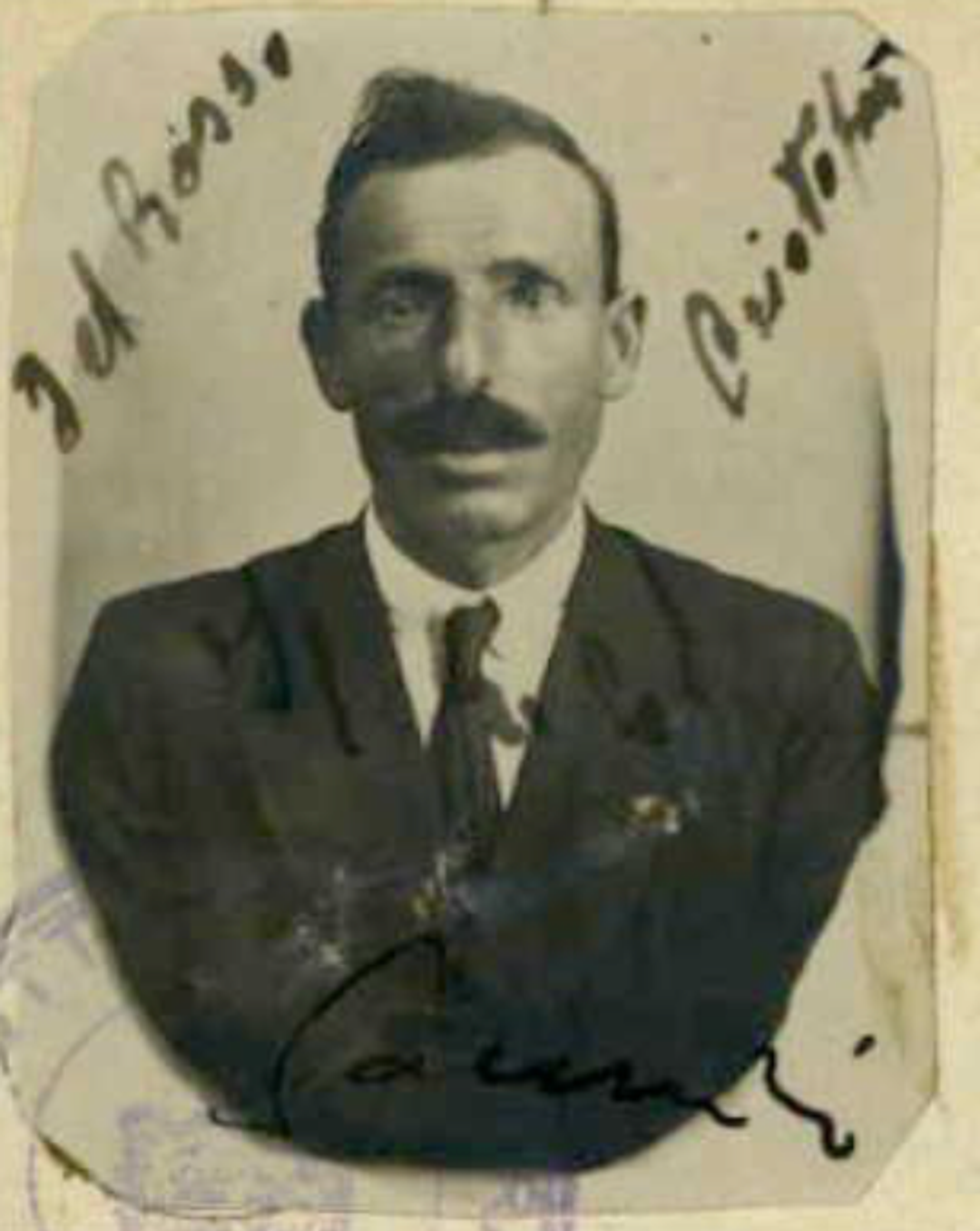
Cristoforo Del Rosso
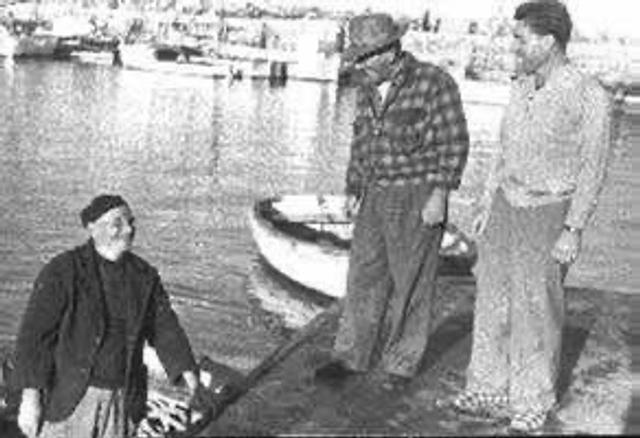
Francesco Amato, Sergio Cappelluti and Francesco Del Rosso
Francesco (Frank) Del Rosso was born in Molfetta, Italy on 25 March 1914, to parents Cristoforo and Catina Pansini. The Del Rosso families were stone mason’s by trade working in quarry’s. Cristoforo becoming the first Fisherman in the family. Cristoforo had originally moved to Sydney where his cousin, Corrado Camporeale worked. There are also records that he briefly visited Fremantle in 1908, with F. Amato and N. Tattoli. However, in 1918, together with many other young Italians, he was called back to Italy by the Italian Government for possible military duties. He arrived, however, when the war was almost over and did not have to serve and he was demobbed. He was then entitled to return to Australia at the Italian Government’s expense. Two years later, on 29 September 1920, and after three months of waiting at a squalid migration centre in Naples, Cristoforo managed to bribe the Captain of the tramp steamer Moncalieri to take him and his family to their new life in Sydney. It was a 45-day trip with his children Stephen, Frank and Marta, and wife Catina. Catina was seasick the entire trip and was quite ill. The ship had to take in Coal for the trip further to Sydney in Fremantle and Catina disembarked, insisting to stay. They were one of the first Molfettese families to arrive and stay in Fremantle at that period, arriving on 3 November 1920. At that time there were a few Molfettese in Fremantle, most were in Port Pirie, SA. Those few that were here, helped support each other to become established.
Catina’s sister, Anna Pansini had married Saverio Rotondella. They were also one of the first Molfetesse families to arrive in Fremantle. The Rotondella’s had three children – Nicola (Nick), Michelle (Michael) and Connie. When they arrived both families lived in Cliff Street. They lived in the top section of a shipping office. There were 3 large rooms, and an open fire. All the kids slept together, and the adults separately. Later both families moved to Nairn Street, living next to each other in a row of cottages, and amongst various other Sicilian families.
Catina later ran a boarding house for Fishermen in the offseason. The men had few belongings and lived out of trunks. Over the years, five more children were born – Phyllis, Frances, Annie, Joyce and Lorna. All 5 girls were born at home in Nairn Street, where Frank had to look after the younger siblings. Cristoforo was often away fishing, but during one birth stayed home. His boat, the Roma, was taken fishing by another Fisherman. That fateful day, the borrowed boat was run aground near Lancelin, with the Del Rosso family losing their uninsured fishing boat to the value of 250 pounds. Cristoforo picked up the pieces and purchased a new vessel, the Roma II. The Rotondella family suffered a similar fate, when the Bella Filomena was lost at sea. Luckily, no one was harmed, and the crew were rescued. The Rotondella’s then relied on donations from Fremantle. They eventually built another boat called the Duilio.
Frank attended CBC Fremantle until the age of 13, when he left to join his Father to work as a professional fisherman. When he was 20, Frank became one of the youngest skippers in WA when he took over his own lugger, the Princess Yolanda. In 1939 he was the first Skipper to put a motor in a fishing boat, but soon afterwards, the non-naturalised members of his Italian crew were interned, and the Government confiscated his boat for war use. A naval reservist for three years before the war, Frank volunteered for the navy at the outbreak but was seconded to the army in 1942. Frank served in the Australian Army from 4 May 1942 to 28 May 1946. He had obtained his driving licence three weeks before joining up and gained the document by driving twice round Fremantle police station and handing over six shillings. With typical services mentality, he was sent to the transport division as a driving instructor. The RAAF then grabbed Frank, where he was seconded to a marine detachment due to his background as a fisherman and his familiarity with the waters off Northwest Australia. He became an adviser to the commander of a RAAF rescue craft during patrols out from Geraldton and Northwest Cape, and on many occasions these patrols had taken the craft on which he served outside Australian territorial waters as far as 70 miles from the mainland. Here he was reunited with his boat, the Princess Yolanda. It was being used to supply the then-secret radar bases along the coast and for submarine patrol duties.
Franks brother, Stephen also served in the Australian Army. He was sent to New Guinea as part of the Australian Works Company, helping supply troops on the frontline.
On 18 September 1943, Frank married Maria Salvemini, the pretty dressmaker from Molfetta he had first met as she went to church in Fremantle. But the wedding came four years after the engagement as Maria’s father was one of those interned. Even on his honeymoon he left orders that if a cargo came up for his boat Princess Yolanda, he had to be called – and he was. It meant leaving bride Maria in their hotel while he took the boat and its goods to Rottnest Island. The couple had four children – Chris, Kathy, Sylvia and Ian.
After World War II, he acted as an interpreter for Italian Prisoners of War who wanted to settle here and was awarded the Insignia Della Solidarieta Italiana (The Star of Italian Solidarity) for services to WA’s Italian community in 1964. Helping the Italian PoWs settle back into civilian life, increased his urge to be useful to the community and, together with Frank Iannello and Sergio Cappelluti, helped form the Fremantle Fishermen’s Cooperative in 1947. Frank then studied to obtain his commercial ship masters certificate.
Frank had a superb singing voice, and he appeared in concerts, including one in Brisbane where he was supporting act for Britain’s huge star Gracie Fields. When he was in Geraldton he sang on local radio and Maria could pick up the broadcasts on shortwave.
He became President of the Blessing of the Fleet Association from 1958 until 1963. In 1963, he sailed the 75-foot freezer boat Geraldton Empress with five other vessels to the Gulf of Carpentaria to undertake a groundbreaking – and successful – survey for prawns.
Frank became a Justice of the Peace in 1964 and was elected to the Fremantle City Council in 1973, while also serving as President of the Fremantle Ratepayers Association. He became deputy mayor in 1978 for a two-year term. He served on Council until 1985, and was re-elected in 1987, serving for a total of 17 years. Frank was given the Italian Friendship Award in 1985.
He was a founding member of ANFE Fremantle (Associazone Nazionale Famiglie degli Emigranti) in 1987, an Italian-Australian migrant family association that helps to link people of similar backgrounds with cultural and social events.
Frank passed away on 19 January 2007, survived at the time by his wife of 63 years, his 4 children, 9 grandchildren and 6 great-grandchildren. In a 1980 interview, asked why he devoted so much time to helping others, Frank replied, “I suppose it is the way I was brought up. If there is someone who needs a hand and I can give it, why not?”
Ex-Fremantle Mayor, Peter Tagliaferri, recalls how he helped him in his first election in 1984, “He had a philosophy of helping others. He was never backward in coming forward or slow to give an opinion but always keen to help and move on, even if there were differences”.
The City of Fremantle, local history collection houses some of Frank Del Rosso’s documents and oral interview, including his autobiography which is well worth a read and I would encourage all of those interested to contact the local history centre for further information. Frank has certainly left a legacy and an indelible mark on many migrant fishing families who he helped over many decades
Story Contributors
James Paratore
